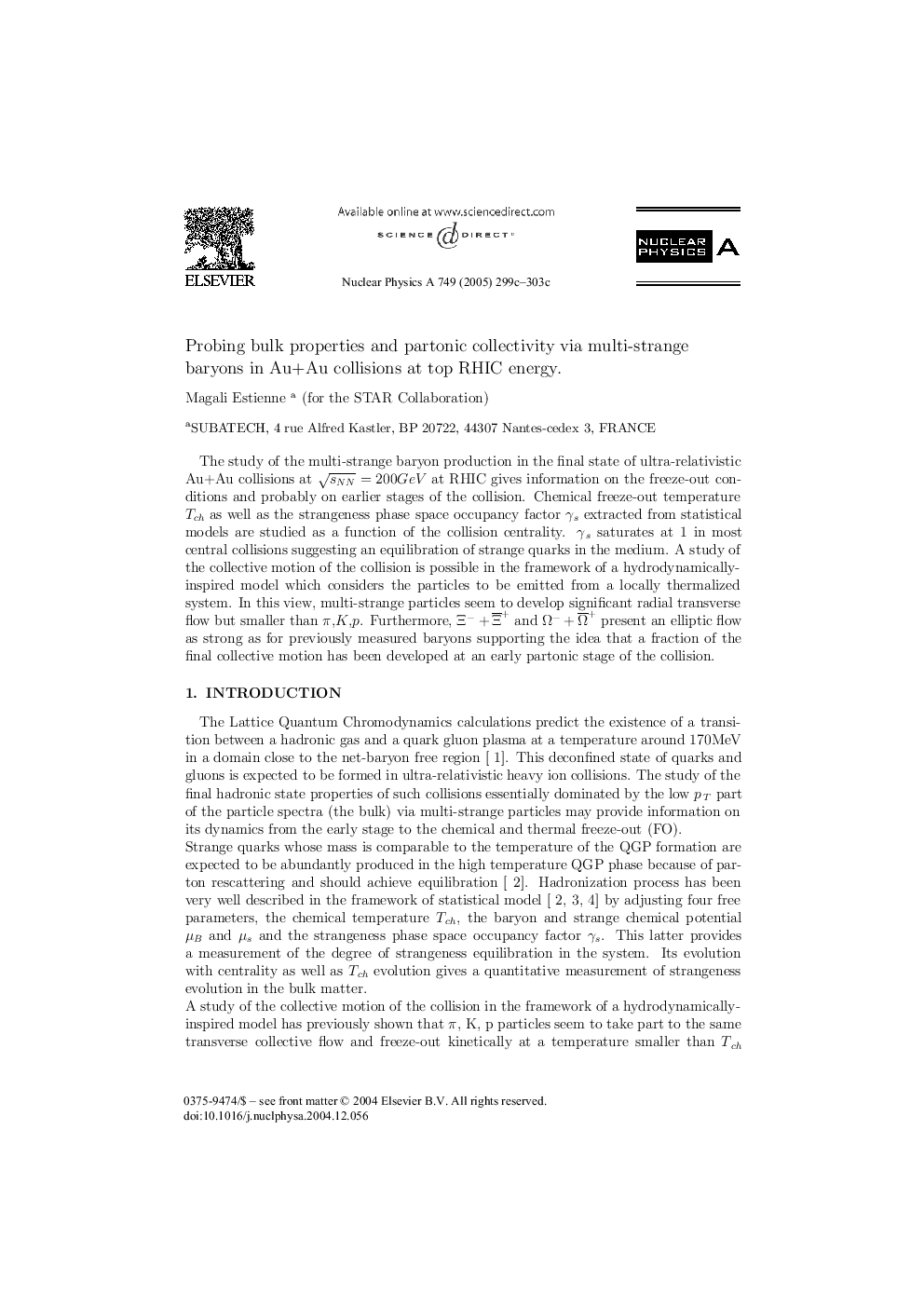| Article ID | Journal | Published Year | Pages | File Type |
|---|---|---|---|---|
| 9851431 | Nuclear Physics A | 2005 | 5 Pages |
Abstract
The study of the multi-strange baryon production in the final state of ultra-relativistic Au+Au collisions at sNN=200GeV at RHIC gives information on the freeze-out conditions and probably on earlier stages of the collision. Chemical freeze-out temperature Tch as well as the strangeness phase space occupancy factor γs extracted from statistical models are studied as a function of the collision centrality. γs saturates at 1 in most central collisions suggesting an equilibration of strange quarks in the medium. A study of the collective motion of the collision is possible in the framework of a hydrodynamically-inspired model which considers the particles to be emitted from a locally thermalized system. In this view, multi-strange particles seem to develop significant radial transverse flow but smaller than Ï,K,p. Furthermore, Îâ+ί+ and Ωâ+Ω¯+ present an elliptic flow as strong as for previously measured baryons supporting the idea that a fraction of the final collective motion has been developed at an early partonic stage of the collision.
Related Topics
Physical Sciences and Engineering
Physics and Astronomy
Nuclear and High Energy Physics
Authors
Magali Estienne, the STAR Collaboration the STAR Collaboration,
